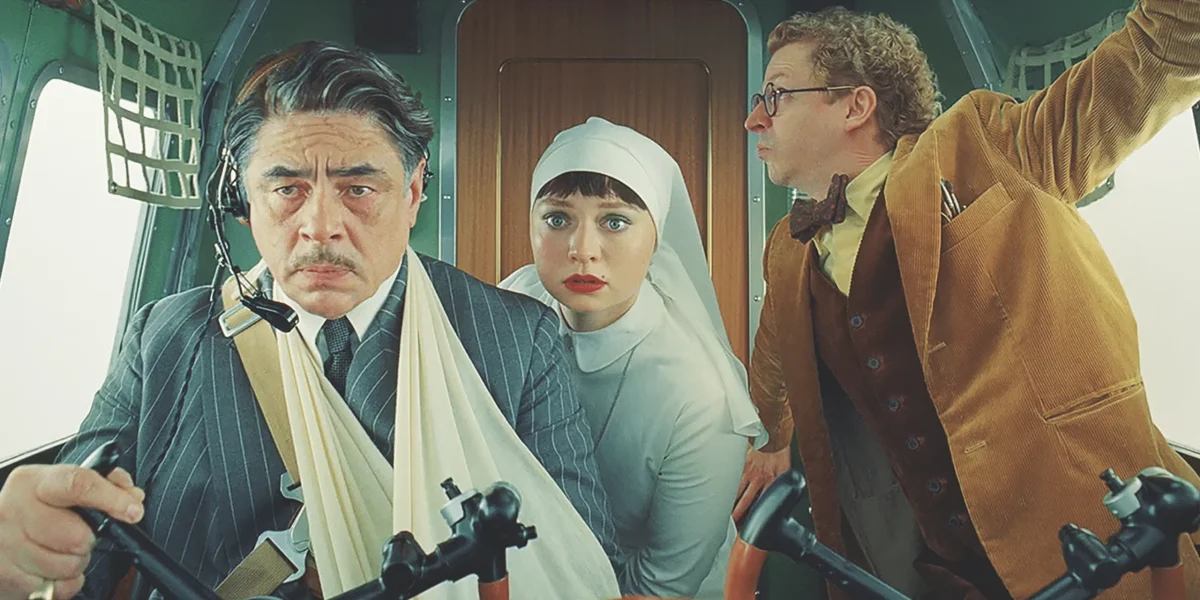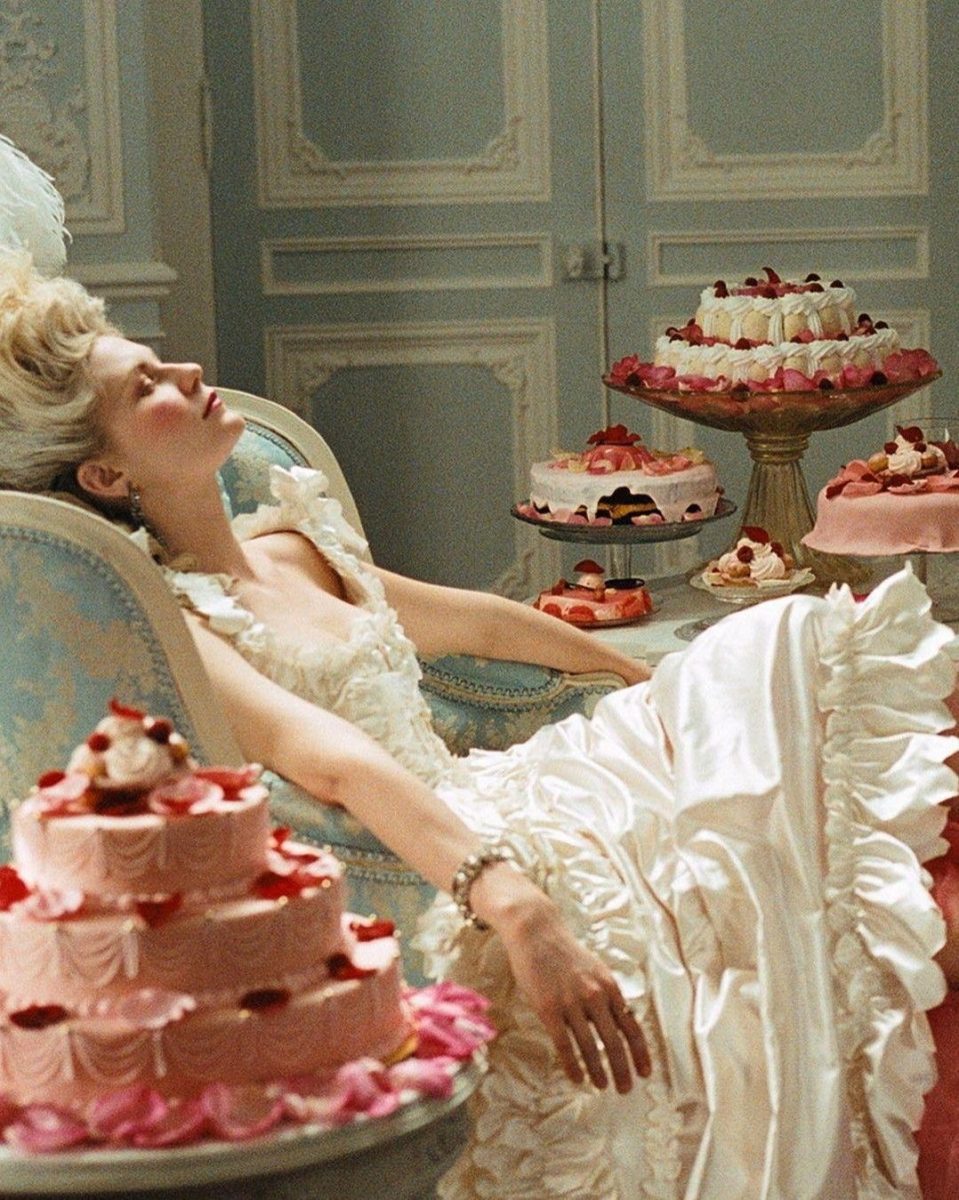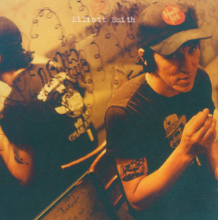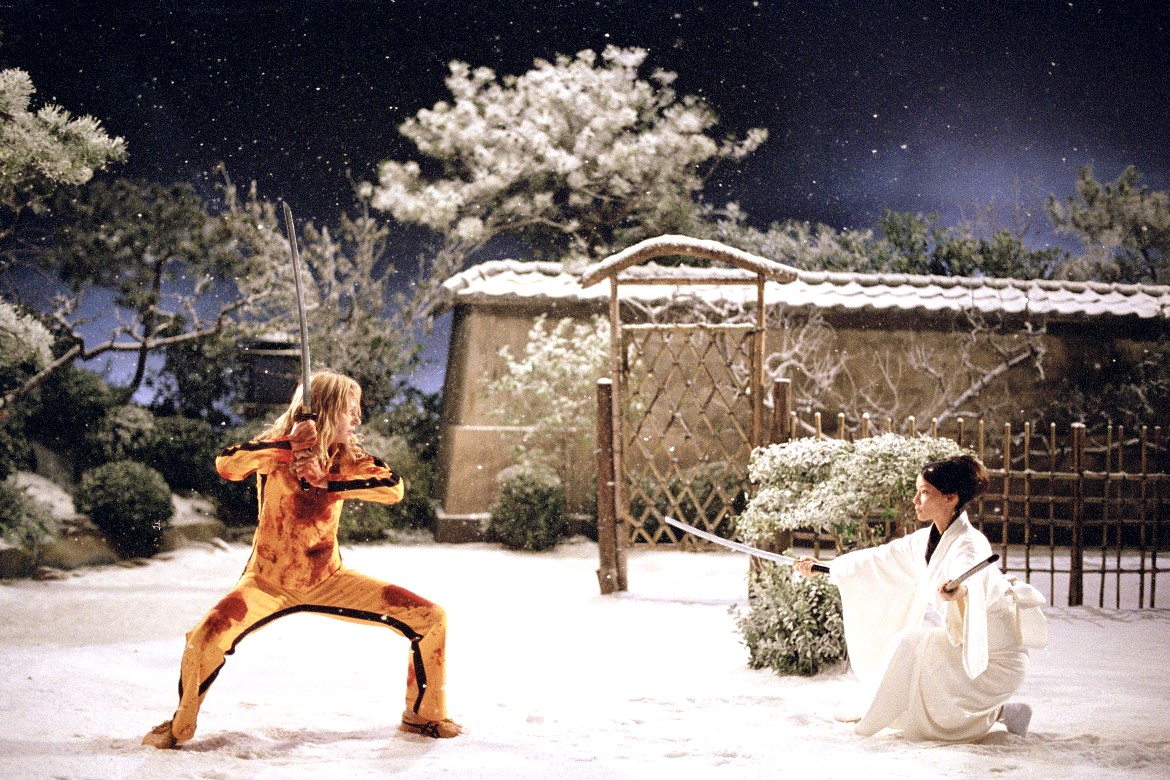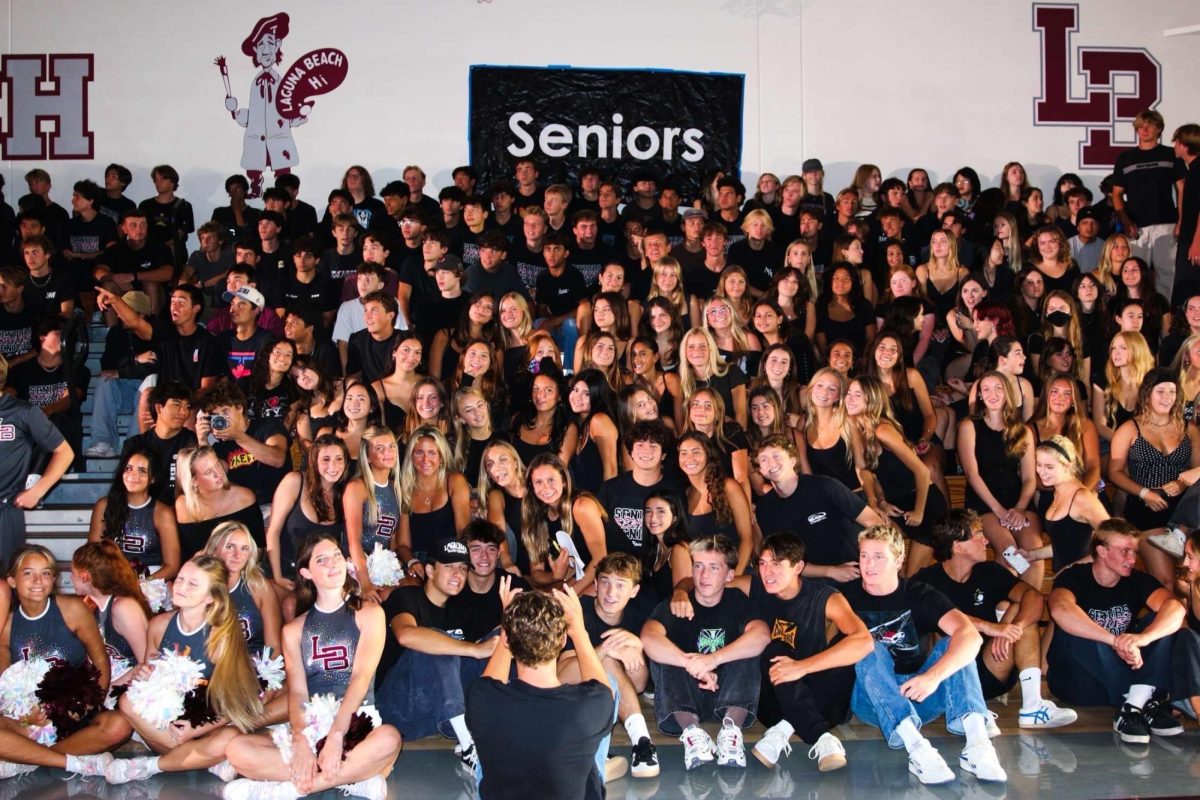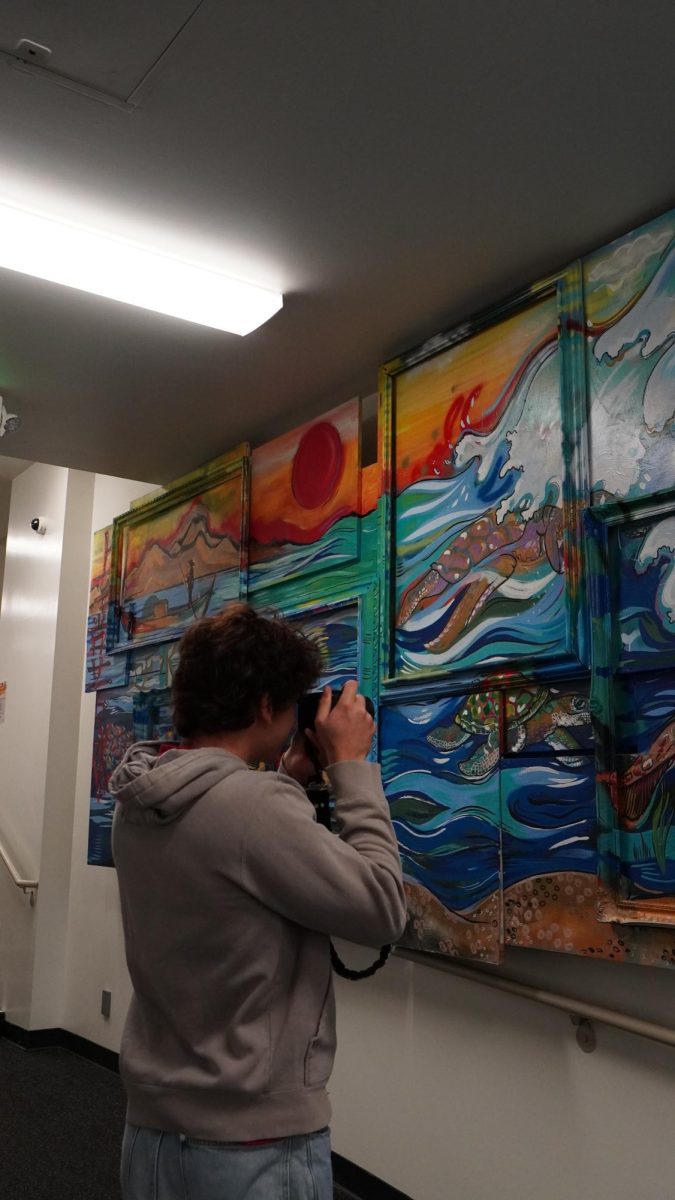Not every film aims to be a masterpiece—and that’s precisely why you might fall for The Phoenician Scheme. Wes Anderson’s latest is chaotic, color-coded, and morally confusing but also brilliant. Benicio del Toro leads a brilliant cast as the characters work together to show us whether or not morality is simply black and white.
Many will try to jump the gun and call this film shallow. After all, we follow Zsa-Zsa Korda through his corrupt business deals and a strange scheme to build lasting infrastructure in the fictional nation of Phoenicia—named after the ancient civilizations that once occupied modern-day Lebanon and the Syrian coast. He’s pouring in his entire net worth, built from a life of global arms dealing.
We never learn why Korda is doing this. Is it redemption? Ego? Desperation? He’s nearing death—he’s survived six plane crash assassination attempts (the sixth opens the film with Korda hilariously ejecting and firing the pilot mid-crash). The tycoon seems to know the end is near. Maybe he wants to end on a good note.
We’re thrust into Biblical scenes multiple times throughout the picture, where it appears Korda is being put before the jury of Heaven. Is Korda aware of his likely damnation after years of exploiting the world and trying to swing the pendulum?
And why is Liesl (Mia Threapleton), Korda’s estranged daughter, involved? She’s on her way to sisterhood when Korda drags her into the scheme by naming her sole heir. It feels less like a business decision than a desperate attempt to reconnect. He regrets sending her to covenant school—”brainwashing” her, as he quips—and sees this inheritance as a way to tether her to him in his final days.
Maybe the film’s “shallowness“ is intentional. The lack of answers force us to sit with Korda—his contradictions, regrets, and delusions. Those near-death visions, his awkward reunion with Liesl, and this morally ambiguous project (which, yes, starts with slave labor—he claims “they’ll receive the smallest stipend”) might all be Anderson’s way of asking: is morality redeemable? Being able to see the director’s thoughts in the form of film and through their characters is quite charming, and I hope other viewers can find these themes within the humorous narrative and gag scenes.
Before diving into the technical brilliance and what Anderson and the cast pull off, let’s wrap up the “shallow“ debate. Watching in the theater, I kept thinking: “Why is Tom Hanks here? Why do I care? Why does he care?“ Maybe he doesn’t. Hanks plays one half of a California investor duo alongside Bryan Cranston, and like many characters, he exists for laughs, energy, and to push Korda’s existential spiral forward. Each investor and appearance is inserted into the narrative for comedic reasons. What the star actors bring to the table is also to move along Korda’s tale of searching for a balance between his legacy and moral rightness.
On a technical level, as I promised, the film is beautiful, with those Anderson-style scenes vibrating with symmetry and color. The circular, sliding camerawork as we see the round panel of government officials hoping to halt Korda’s scheme by manipulating the market to raise the price of building materials such as nuts and bolts pulls you in and keeps your eyes swirling.
The narrative, even without the background, intrigues you. This price increase works against Korda, creating “the Gap,” which Korda must now fill via his investors so that the Phoenician Scheme does not drain him to bankruptcy.
We follow Korda, Liesl, and the newly-appointed Bjorn (Michael Cera), an entomologist tutor who constantly and drunkenly flirts with the ever-religious Liesl, as they visit investors to make sure they’re still involved with the money figure they initially agreed to.
However, to fill “the Gap,” Korda tries to increase their investment beneath each of their noses and says the meeting is sincerely symbolic. You become used to his offering of a hand grenade upon arrival at each investor’s location and then each individual’s anger at his dishonesty. They all drop their investments, with some engaging scenarios either earning some percentage points back for Korda or even going down to zero percent.
Ultimately, it’s a square-off between him and his estranged half-brother, Nubar (Benedict Cumberbatch), as the latter tries to destroy the entire project despite his initial investment from afar through an intermediary. It’s safe to say Nubar’s story is one worth watching, especially his ties to Liesl.
An absolute star plays each investor. As said, Hanks and Cranston play brothers Leland and Reagan. Riz Ahmed (read my review on his film, Sound of Metal) kills his performance as Prince Farouk of Phoenicia. Mathieu Amaric impresses as a witty French nightclub owner named Marseille Bob.
We visit Marty on a boat – Korda may or may not pull a grenade to his head literally during a blood transfusion between the two – played by a charming Jeffrey Wright. Korda may or may not propose to his second cousin Hilda to secure her investment, but who can blame him? It’s Scarlett Johansson.
We even see Bill Murray as God (of course) in Korda’s visions and Willem Dafoe as a servant in Heaven. Each powerhouse actor wanted to try something fun and different, and they found that welcoming home in Anderson’s bright and beautiful creation. Something weird and all over the place can be appealing, and I see why each star was drawn to this quirky project.
Michael Cera deserves his paragraph – holy cow, that man can act. I won’t spoil his interesting transformation mid-film, but the Superbad star captures your attention during the adventure. The Norwegian accent he puts on is hilarious, and I genuinely thought his character was serious until the American voice came out amidst yet another plane crash. Anderson, thank you for giving me this Cera performance.
Unfortunately, I will be joining Cera’s praise with the leading man, Benicio del Toro, who put in a stellar job left and right. His facial expressions, body language, and mannerisms are perfect for Anderson’s framing, which puts the character front and center. He captures the screen and demands your attention, and his interactions with the side characters have unique quirks and laughs.
Overall, Anderson smashed this film, no matter where you place it in a list of his creations. You may try to dislike it, slap a thumbs down on it, or label it shallow, but you’d be lying if you left the theater and said you wouldn’t be interested in seeing it again. The shots, the roles, the chuckles, the director. Yes, the narrative, too. You’re no better than Korda if you don’t give flowers in your final days (afterlife acceptance or not) to The Phoenician Scheme.

